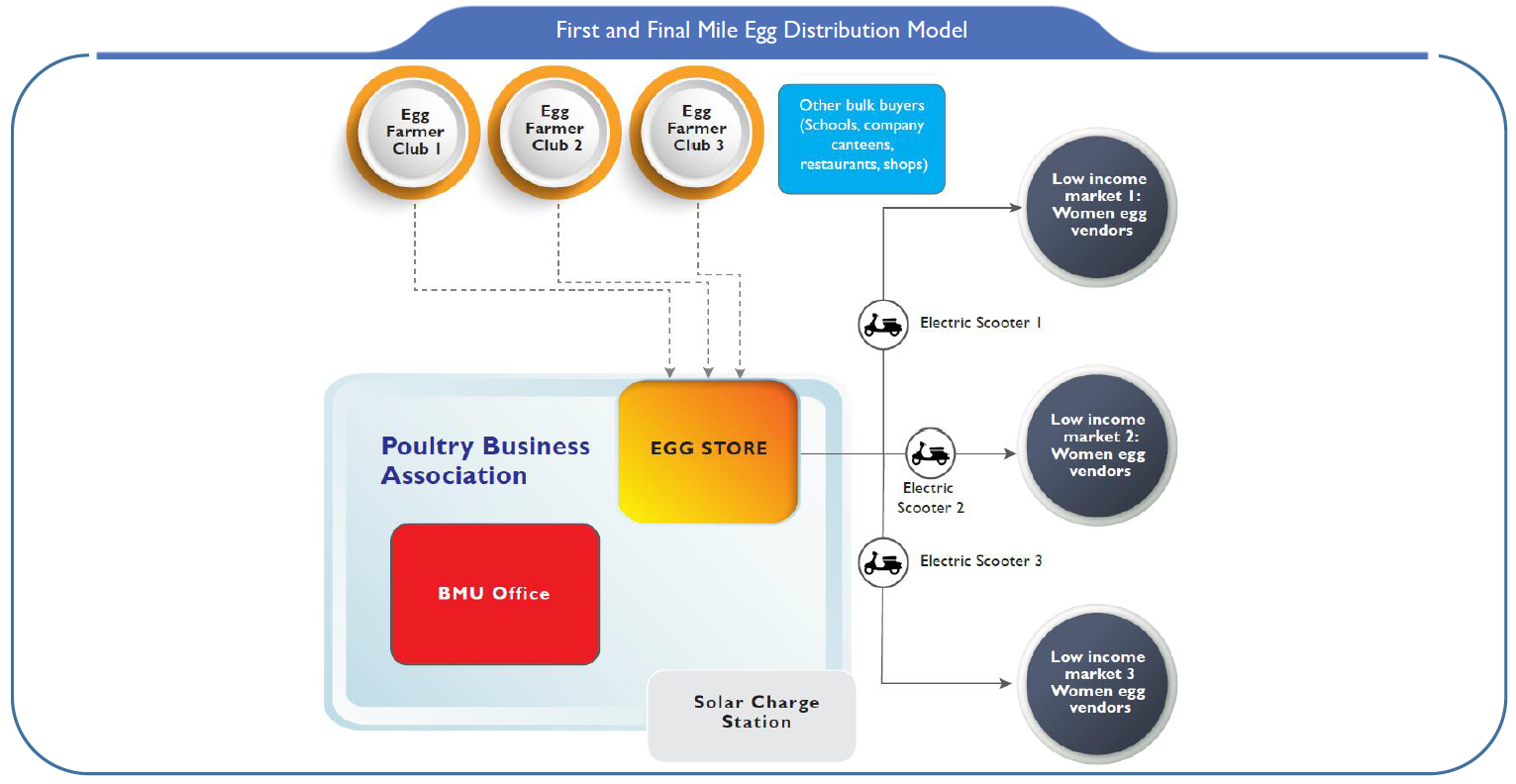
The Inclusive Poultry Value Chain (IPVC) project has piloted the first and final mile egg distribution intervention in Domboshava, Mashonaland East province. The project has provided 20 solar powered tricycles to the Harare Poultry Business Association (PBA) sub-hub in Domboshava. IPVC further collaborated with Mobility for Africa, to assist with charging ports for the tricycles for the farmers. This intervention is set to ease egg transportation and distribution challenges in the area and bridge the transportation gaps by assisting egg producers to transport their eggs from their farm to the centre on time. The producers will also be able to transport their feed and day-old chicks purchased from the PBA back to their farms. In total, twenty-six women egg producers from 13 groups have been trained to ride the tricycles.
The strategy below outlines the key components of the strategy to reduce costs and improve market linkages for egg farmers in the Domboshava area as a pilot:
Egg Aggregation: Egg farmers in different locations around Domboshava grade and bulk eggs for transport to the egg storage facility located at the Poultry Business Association Sub Hub.
Egg Distribution: The Business Management Units (BMU) of the association coordinates with women vendors in the high population low-income residential egg markets as well as institutional markets (e.g. schools, restaurants, company canteens, etc) to compile bulk orders for eggs. It also coordinates delivery of eggs using environmentally friendly electric scooters. 15 scooters (400 kg payload and 40km on single charge) will be allocated to 15 farmer groups (each group comprising of five members).
Green Technology: Solar charging stations have been set up to provide power for charging the batteries for the electric scooters as well as BMU sub office (lights, computers, cellphones, etc). Mobility for Africa estimates that such a station would cost about $5500 per site. This investment reduces cost of running the BMU as well as fuel costs of transporting eggs from PBA to end markets.
Inclusive Growth: Organised women egg vendors get supplies of eggs without having to go to central wholesale market reducing the transactions cost and their ability to pass on benefits to their customers in the form of less expensive eggs.

Revolving Fund for s for Point of Lay Birds
The first and final mile egg distribution intervention is also coming in as an extension to the Revolving Fund for access to point of lay birds, for members of the Poultry Business Associations.
With a reported shortage of point of Lay cheickens (POLs) on the market and the high prices averaging above US$9.00, IPVC introduced a POL revolving fund to address this high cost and the unavailability of POLs on the market. These POL birds will be sold to PBA members at $6 per bird. Members are expected to save about US$3.00 per every point of lay bird purchased relative to prevailing market prices.
Due to the high demand, each association member is expected to buy a maximum of 400 point of birds, so that the project reach is wider. The first batch of 7,200 POLs will be available in mid-June, with the second batch of 5,000 POLs expected to be ready mid-September 2021.
How much is the farmer saving by buying as an association member? For 400 POLs, the PBA price is US$2,560 against a market price of US$3,600, resulting in US$1.040 saved. The proceeds from any sales under this model are used to secure the next batch of layer chicks and the revolving model is sustained. Farmers may then choose to stimulate egg demand through lower selling price of eggs, leveraging on the lowered costs of production, thus remain competitive on the market.
